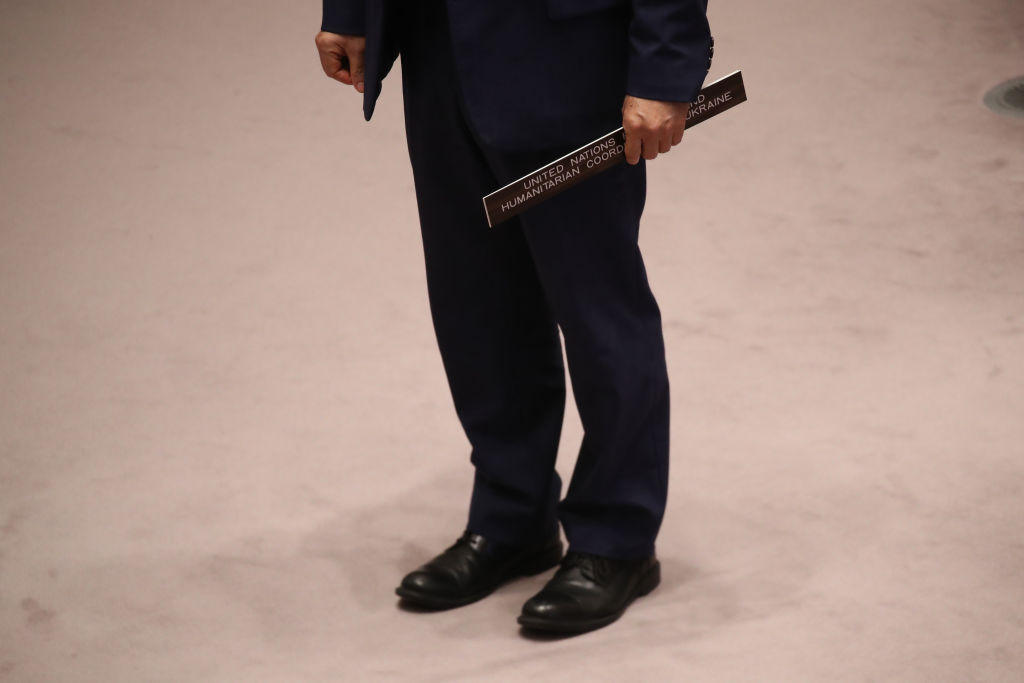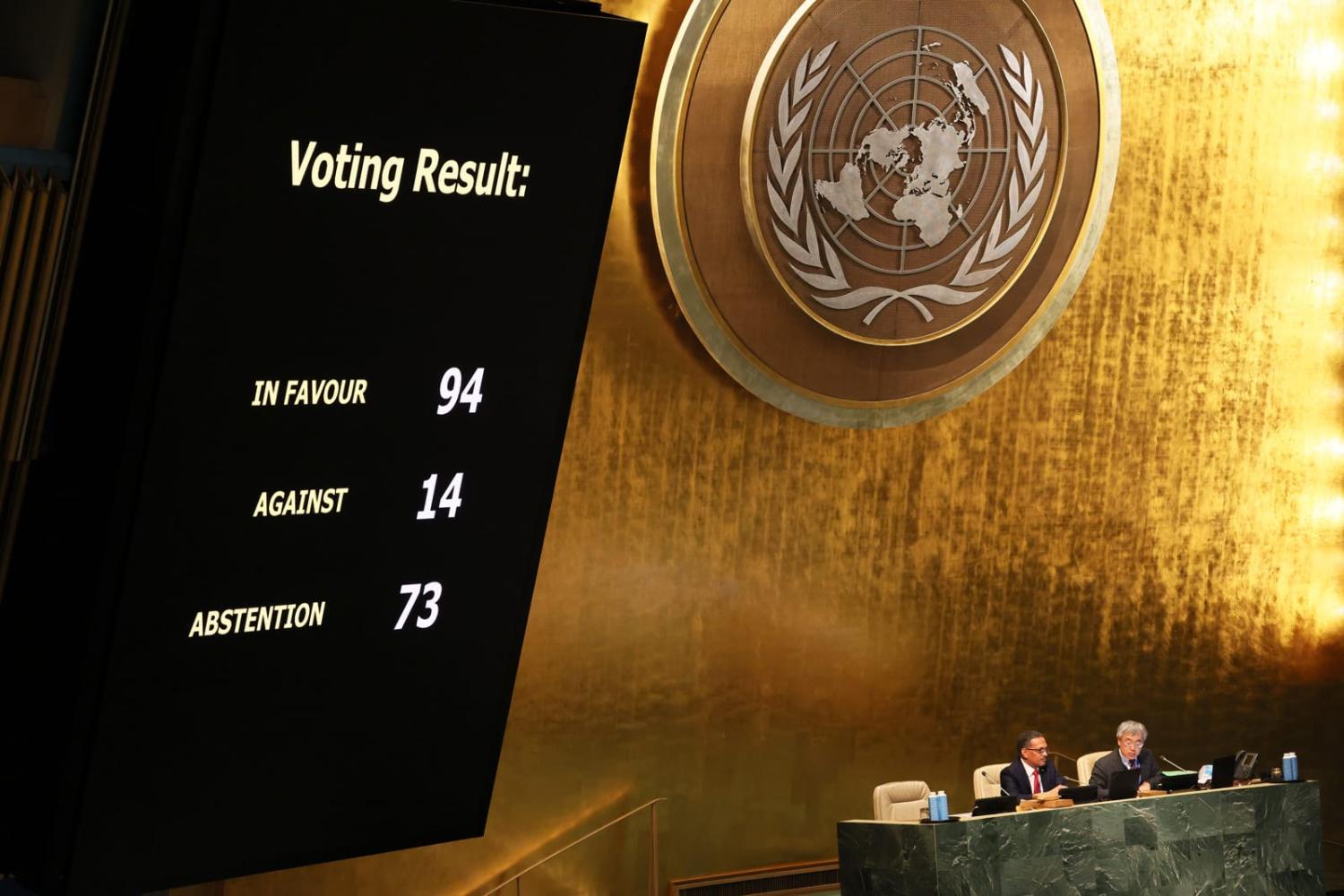On 26 February last year, a few days after Russia’s invasion of Ukraine, the Association of Southeast Asian Nations issued a statement expressing “concern’’ over the “evolving situation” – a stance that caused great dismay among the many countries hoping for a stronger international condemnation of Russia’s actions.
Almost one year later, even after Ukraine’s foreign minister himself lobbied ASEAN countries to do so, the grouping is yet to collectively denounce Russia’s move. Outside of ASEAN, countries such as South Korea and Japan were more open in their denunciation of the Kremlin.
At the United Nations, many Asian countries have also been cautious when it comes to resolutions put forward on the invasion. While a number of Western-aligned countries have voted in favour of and even co-sponsored resolutions denouncing Russia, many others have opted to consistently abstain, including on votes reaffirming Ukraine’s sovereignty.
The region’s biggest player, China, continues to balance its rise at the UN with its proximity to the Kremlin, while the conflict has brought North Korea even closer to Russia.
China’s balancing act
While nobody knows exactly what was said during the Xi Jinping-Vladimir Putin meeting in Beijing in the weeks before Russia’s invasion, its tone set the stage for subsequent events. The two leaders’ statement declaring “no limits to their strategic partnership” furthered tensions between the East and the West.
China’s subsequent support of Russia in its invasion did however show some limits. Western diplomats sensed China was put in a difficult position. China has continued to keep a deliberately ambiguous stance on the war, reminding rivals of the importance of sovereignty and territorial integrity while using abstention votes on the matter in the UN Security Council and the General Assembly. China also tried to present itself as a potential mediator between the parties involved in the war, but that idea was quickly dismissed.
China abstained on a majority of votes in the Security Council and the General Assembly, but it did vote against an April resolution suspending Russia from the Human Rights Council, saying the vote “set[s] a dangerous precedent”.
All in all, China’s voting patterns show the war in Ukraine has undoubtedly widened the gap between China, Russia and the West, but China’s support, especially its military support, has not been as limitless as initially expressed before the war.

DPRK: closer together
In October 2022, the General Assembly passed a resolution asking Russia to reverse course following its annexation of the Ukrainian territories of Donetsk, Kherson, Luhansk and Zaporizhzhia. A total of 143 countries voted in favour of the resolution, and only four countries voted alongside Russia against the resolution. The only Asian country to do so was the Democratic People’s Republic of Korea (DPRK). Not long after the vote, the DPRK also recognised the territories as Russian.
The DPRK’s unconditional support of Russia in its voting patterns could have a direct effect on votes about issues affecting North Korea in the Security Council, bringing Moscow closer to Pyongyang. The arms trade between the two countries also speaks to the close partnership.
The last time the Security Council issued a presidential statement on the DPRK was in 2017, and the inability of the Council to do or say anything in a united manner in 2022, despite the country’s record-breaking number of missile launches, did not go unnoticed. As such, while China has shown some restraint in its partnership with Russia, the DPRK continues to openly support the Kremlin at the UN.
A cautious and tactful approach
While Pyongyang stands out as the only Asian country to offer unconditional support of Russia’s war, many Asian countries were reluctant to fully denounce Russia’s actions and opted somewhere in the middle.
Countries such as Vietnam, Laos and Thailand have continually abstained on Ukraine-related resolutions at the UN, as has Sri Lanka.
Indonesia, as the host of the G20 Summit last July, tirelessly sought to present itself as a potential mediator in Ukraine, and President Joko Widodo attempted some shuttle diplomacy, unsuccessfully. At the UN, however, Indonesia did not opt for neutral votes and voted in favour of resolutions denouncing Russia’s actions.
Myanmar, as well as Afghanistan, denounced the invasion but both still have representatives from previous, elected governments as the UN has not recognised the Taliban in Afghanistan nor the junta in Myanmar. As such, the lack of support at the UN may not represent the de facto authorities’ stance at home.
India’s many friends
India was put in the hot seat as an elected member of the Security Council in 2022. The country sought to show the world it is a geopolitical leader and deserves a permanent seat on the Council while also formulating a coherent policy on Ukraine.
On the Security Council, India kept a position of abstention on any Ukraine vote – except on an obscure procedural vote requested by Russia to prevent Ukraine’s President Volodymyr Zelenskyy from taking part in a meeting virtually. India voted to allow Zelenskyy to speak.
If India wanted to flex its diplomatic muscle on the Security Council to show it deserves a permanent seat, the country’s speeches and voting patterns at the UN have shown restraint rather than a tour de force. India’s balancing act was a tough one to maintain. India has to tightly manage its proximity to the West through the security ties in the Quad, and with Russia through the BRICS emerging economies group. India’s economic interests also undoubtedly influence its stance – the country continues to purchase Russian crude oil at discount despite sanctions imposed by other countries. India’s abstentions are also not a surprise considering its longstanding refusal to criticise Russia at the UN.
One year later
Asian countries have, so far, shown consistency when it comes to voting at the General Assembly. Both the General Assembly and the Security Council will hold meetings to mark the one-year anniversary of the invasion of Ukraine. With no end in sight to the conflict, it seems likely based on this pattern that Asian countries will continue to opt for caution and neutrality rather than push for a more resolute stance.

